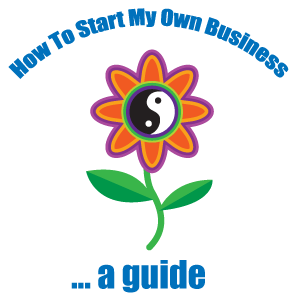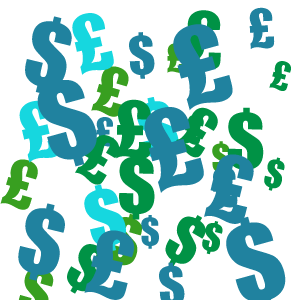
If you are thinking about ‘how to start my own business’ then you have probably already got a business idea in mind. If not, it’s time to start brainstorming. Starting a business doesn’t have to be difficult; neither does it necessarily require a large amount of money. There are other articles in Working Inspired that will provide you with business ideas; here we will assume that you already have a business in mind.
So, if you want to know how to start my own business, read on …
How To Start My Own Business?
Listed below are the basic stages to starting a small business. If you do your research and work through them methodically then they are quite straightforward. You do not have to do them in quite this order, and there is a degree of overlap in some of the stages.
- Write a business plan
- Choose a business structure
- Name your business
- Register with the relevant authorities to comply with the legal requirements of your country
- Adopt a suitable accounting system
- Start trading
- Market your product or service
In this article we are going to concentrate on the very first steps you need to take. We are going to assume that you have a business idea that you believe to be viable.
If You’re Still Looking For A Business Idea
If you do need inspiration then remember that wherever there is ‘pain’, there is a chance to make money. The pain is not necessarily physical, rather it is an obstacle or a difficulty. Perhaps the nearest hardware shop is ten miles away; maybe the local business park doesn’t have a sandwich round. Your idea doesn’t necessarily have to be original or complicated. There are potential businesses all around you.
How To Start My Own Business – The First Step
Write A Business Plan
Your business plan can be as long or as short as you want it to be. Bear in mind that if you need to raise finance from the bank or from outside investors then the business plan will need to be far more detailed. If this is the case then it may be worth asking an accountant or other professional to help you prepare it. You may find that doing this proves to be beneficial in any case.
Bear in mind that raising capital from the bank can be difficult unless you are also going to be investing a substantial amount of your own money. You may be required to use your own home as security.
Your business plan should also include details of your marketing strategy. Most businesses need to spend money on advertising to attract their first customers.
The business plan should detail the aims of the business and how you intent to trade. It should have figures for the amount of capital you are going to put in. Very importantly, it should detail your cash-flow. Cash is like oxygen to a business. Just as you can’t survive on the promise of oxygen, your business won’t survive on invoices – it needs cash to pay for rent and supplies.

Choose a business structure
There are three main types of business in the UK: sole traders, partnerships and companies. Very briefly, sole traders and partnerships are owned and managed by their owners. The owners are liable for any debts incurred by their businesses. Companies differ in that they are separate legal entities from their owners. The liability of the owners of companies is limited to the amount of capital they have put into the business. Most companies in the UK are private companies. Private companies have the word ‘limited’ at the end of their name. There is a lot more paperwork and expense involved in forming a company. However, companies give the impression of being bigger and more professional that sole traders and partnerships.
Name Your Business
Although you can change your business name at a later date, it’s worth choosing something that you are likely to be happy with for the foreseeable future. It is possible to be either too general or too specific when choosing a business name. Avoid puns and trendy names, and be careful with business names containing a location – you might move at some point.
Choose a name in line with the business goals you outlined in your business plan.
You should also make sure that no one else is using the name, and that is hasn’t been trademarked. You can search for existing UK trademarks at the Intellectual Property Office. Certain phrases are prohibited or protected – do your research before you start trading.
Check for US trademarks at the United States Patent And Trademark Office.
If you are planning on creating a website for your business, you should check that the domain name is still available.

Notify The HMRC (Or Equivalent Organisation In Your Country)
In the UK, when you become self-employed you have to notify HM Revenue & Customs (HMRC). You’ll be required to fill in self-assessment returns and pay income tax. You’ll also have to pay Class 2 National Insurance contributions. You can choose to do this all yourself, or get an accountant or bookkeeper to help. More information on registering as self-employed can be found on the HMRC website.
Most other countries have similar organisations and require to you register your change of status.
Cover Yourself Legally
When you start trading, you leave the safety of employment. You will become responsible for your own actions. You should ensure that you have adequate insurance to cover you in your business activities.
You will find that problems present themselves everywhere: your normal car insurance will need to be changed if you are using it for work. It may have to be changed anyway to reflect that you are now self-employed, and therefore, in the eyes of the insurance company, a greater risk.
Adopt A Suitable Accounting System
You should keep accurate records of everything you spend and receive in the course of running your business. Make sure you keep hold of receipts and other documents relating to payments and receipts. You can either do your own bookkeeping or employ someone to do it for you. Records can be written down, or stored on your computer, either on a spreadsheet or using a specialised accounting software package.
Even if you start a sole-trader business, do get a separate bank account for your business (this is required if you start a company). Bookkeeping is very tedious if business transactions are mixed up with the daily groceries!
Start Trading
You can talk about business ideas and write up business plans all day long, but until you rent the office space, or hire the web designer, or place your advert in the local paper, you are not in business. In fact, until you make your first sale, you are not in business.
The first time your new business makes some money is incredibly exciting. Even if it is just a small amount, it still proves that you are providing goods or a service that other people are willing to pay for.
Market Your Business
Spending money on advertising is one of the hardest things to do; it really does seem as if you are throwing money away. However, all of the work you have already put in will be wasted if nobody knows about your business. For many small businesses, advertising needn’t be overly expensive. However, you do need to get those first customers through the door.
How To Start My Own Business Conclusion
If, at the beginning of this article, you were thinking ‘how to start my own business’, we hope that many of your questions have been answered. There are a lot of hoops that need to be jumped through, but if you are determined and remain focused then anything is possible. The thrill of making you first sale will be worth all of the hard work.
